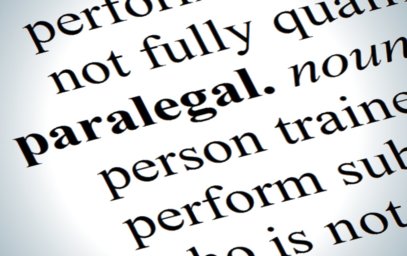 When involved in a motor vehicle accident many individuals claim to be depressed and injured. How do you assess how depressed someone truly is? Is Facebook an appropriate measure?
When involved in a motor vehicle accident many individuals claim to be depressed and injured. How do you assess how depressed someone truly is? Is Facebook an appropriate measure?
A recent debate has stirred regarding the use of Facebook and social media images as evidence in court. Some legal practitioners have turned to social media to establish that the plaintiff is not in fact depressed. Legal practitioners are using the plaintiff’s Facebook pictures and status updates to establish the plaintiffs’ healthy and active social life. For example, if a person is claiming to be depressed and to have lost interest in spending time with their friends due to their chronic pain but then posts pictures of their white water rafting trip with their pals – there’s a bit of discrepancy in their story. Some courts will take this into consideration while others won’t. What’s the reason for the inconsistency?
Anti-Facebook
Some judges argue that Facebook is often used to project a certain image, generally one of happiness and living an exciting life; accordingly, what we see online is not always a proper depiction of the person’s life. Secondly, Facebook only captures moments and is not an accurate evaluation of someone’s daily life. Third, individuals suffering from depression may not publicize their struggle with depression and may prefer to hide it with pictures and statuses that suggest otherwise. Finally, depression isn’t always visible to outsiders.
Pro-Facebook
Conversely, some legal professionals argue that Facebook is a legitimate source for evidence as it captures how the person is spending their time. If a person tells their psychiatrist that they are suffering from depression and have no interest in going out and have no friends but then post pictures of them at a bar with all their friends every Friday, there is reason to doubt the individuals claim. In a more extreme example, if an individual states that they can no longer partake in activities they once enjoyed such as running but then post pictures of them winning a marathon after their accident – again there’s reason for doubt. Based on this context some lawyers argue that there is no reason for these pictures not to be accepted as evidence.
A reader asked me what my opinion was on the matter and I will address that in this section. Don’t do it – if you’re involved in a personal injury case, shut down social media for a while or refrain from posting pictures and status updates that can be misconstrued. It’s an easy step to take to avoid complications in your case. In respect to the use of Facebook pictures as evidence, I believe it is acceptable to use social media pictures as evidence but with discretion. For instance, if a plaintiff is claiming they can’t partake in certain activities but then post pictures of doing just that, any reasonable person would question the validity of the plaintiffs claim. False claims only waste the court’s time.
 Nonetheless, I believe legal practitioners need to be careful when claiming that someone is not depressed because they smile in a Facebook picture – depression is far more complicated than a smile. I also understand that some individuals feel this is a violation of their privacy; however, if you keep an open profile your privacy is likely to be compromised.
Nonetheless, I believe legal practitioners need to be careful when claiming that someone is not depressed because they smile in a Facebook picture – depression is far more complicated than a smile. I also understand that some individuals feel this is a violation of their privacy; however, if you keep an open profile your privacy is likely to be compromised.
What do you think?
Points of discussion
1. Do you think Facebook pictures should be used as evidence?
2. Where would you draw the line for accepting Facebook post and images as evidence?
Did you learn something new or enjoy what you read? Press “like” and subscribe!
I think if someone posts pictures on Facebook and is in the midst of a legal battle, they should be smart enough to cover their own rears by not posting anything discrepant with their “official story”. If they do choose to post anything, social media posts should be fair grounds by which to assess the credibility of a client’s story or narrative. Often times this assessment could just make the difference between whether or not justice is achieved.
LikeLiked by 1 person
Hi Nab! I think you have an excellent point. Many individuals do not realize the predicament they put themselves in when posting pictures contradicting their claims. Conversely, it sometimes works to the advantage of the justice system as it becomes evident that an individuals story is incoherent. Thank you for taking the time to share your thoughts! I hope to hear from you again!
LikeLike
I have to agree with you. Social media sites such as Facebook are so widespread and part of our culture that it is almost impossible to ignore the information that is presented on them. That being said however, certain behaviours are ambiguous and needed to be handled accordingly. For example it would be unfair to judge someone’s mental health based on statuses and images they upload. When my anxiety was bad and I spent much time getting medical help, I did not exactly throw that information out for the world to see; rather I continued to post “happy” photos that suggested otherwise. There is a huge stigma surrounding mental health as we all know and social media is not a reliable source for gauging behaviours that cannot be explicitly quantified themselves. People who are depressed claim they are not, and those who are not claim they are…if we have yet to be able to medically determine this through science, how can we jump to their online posts then? Again, in clear cut cases such as someone claiming they cannot engage in a particular activity but their Twitter account suggests otherwise, then yes, that begs for legal attention. At the end of the day, proceed with caution.
On a side note, I genuinely believe that people should simply be more cautious with what they choose to post on social media websites in general. Whatever you post, be aware that not only can it be used against you in court (should the situation ever arise), but also it’s a safety issue. At the end of the day, people are free to choose what they do and do not post online, but they should take full responsibility for that given post and any consequences that may arise due to it just as they would their behaviour in a public setting.
LikeLiked by 1 person
Hi Ktbedi! I really like the example you used about behaviour in a public setting because it is essentially public space once it’s on social media. Thanks for your comment! Hope to hear more from you in the future !
LikeLiked by 1 person
Reblogged this on The Social Paralegal and commented:
Should Facebook pictures be used as evidence? What are your thoughts?
LikeLike